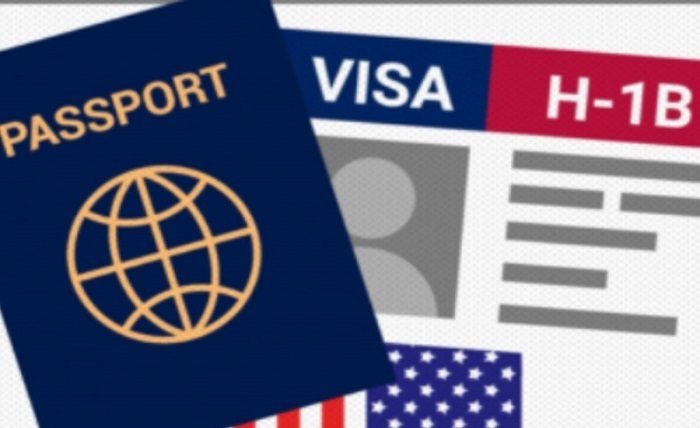
The United States has taken a significant step toward supporting the career aspirations of Indian spouses of H-1B visa holders. This move has brought a ray of hope and opened doors of opportunity for many individuals who were previously limited by visa restrictions. In this blog post, we will explore the recent developments in America’s work permit policy for Indian spouses and the positive impact it has on their lives and the economy. If you are an Indian spouse on an H-1B visa or are interested in understanding the benefits of this policy change, keep reading!
The H-1B visa program is a popular pathway for skilled professionals from around the world to work in the United States. However, Indian spouses of H-1B visa holders faced a significant challenge in pursuing their own careers due to the lack of work permits. This resulted in a considerable talent pool being underutilized and prevented many Indian families from reaching their full potential. But now, with the recent policy change, America has granted work permits to Indian spouses, offering them the opportunity to contribute to the workforce and pursue their professional goals.
Understanding the H-1B Visa and Its Impact on Indian Families
The H-1B visa is a non-immigrant visa that allows U.S. employers to temporarily hire foreign workers in specialized occupations. Many Indian professionals, particularly in the fields of technology and engineering, have benefitted from this visa program. However, the inability of their spouses to work hindered the holistic growth and development of Indian families in the United States.
Indian spouses on H-1B visas faced various challenges, such as a sense of dependency, financial strain, and limitations on their career growth. This situation often resulted in dissatisfaction, frustration, and an imbalance in their personal and professional lives. The need for work permits for Indian spouses became a pressing issue that required attention and resolution.
America Granting Work Permits for Indian Spouses of H-1B Visa Holders
In recent times, the United States has recognized the importance of addressing the concerns faced by Indian spouses on H-1B visas. As a result, the American government has implemented a policy change granting work permits to Indian spouses, enabling them to pursue employment opportunities and contribute to the local workforce.
This policy change has brought about numerous benefits for Indian spouses. It allows them to support their families financially, gain independence, and build their professional careers. By granting work permits, America acknowledges the talent and potential of Indian spouses and seeks to utilize their skills to bolster the economy.
How Work Permits for Indian Spouses Contribute to the Economy
The work permits granted to Indian spouses of H-1B visa holders have a positive impact not only on the individuals themselves but also on the broader economy. When Indian spouses are allowed to work, it leads to increased workforce participation and productivity. This, in turn, benefits local businesses, fosters economic growth, and enhances the overall prosperity of the community.
Moreover, work permits for Indian spouses reduce the financial burden on families. By having two incomes, Indian families can achieve financial stability, pursue higher education, invest in businesses, and contribute to the local economy through increased spending power. The ripple effect of this policy change is felt in various sectors and plays a crucial role in the nation’s economic progress.
Challenges and Limitations of the Work Permit Policy
While the work permit policy for Indian spouses of H-1B visa holders is undoubtedly a significant step forward, it is essential to acknowledge the challenges and limitations that still exist. The policy has certain restrictions and eligibility criteria that need to be met, creating a barrier for some individuals. Additionally, there may be concerns regarding job availability, career progression, and potential issues faced by Indian spouses in the workplace.
To ensure the success of this policy, it is crucial to continually evaluate its effectiveness, identify areas of improvement, and address the limitations. By doing so, the United States can create an inclusive environment that maximizes the potential of all individuals, irrespective of their immigration status.
Success Stories of Indian Spouses Benefiting from Work Permits
The work permit policy for Indian spouses has already produced remarkable success stories. Indian spouses who have obtained work permits have witnessed significant career growth and professional achievements. They have successfully navigated the job market, secured fulfilling employment, and contributed to their respective fields.
These success stories serve as a testament to the positive impact of the work permit policy. They inspire and motivate other Indian spouses to explore the opportunities available to them, pursue their dreams, and make a meaningful difference in their lives and the lives of their families.
Tips for Indian Spouses Applying for Work Permits
If you are an Indian spouse on an H-1B visa and wish to apply for a work permit, it is essential to understand the application process and requirements. Gather all the necessary documents, such as identification, marriage certificates, and relevant work experience proofs. Seek professional assistance if needed to ensure a smooth application process and increase your chances of success.
Remember, obtaining a work permit opens doors to a world of possibilities. It allows you to showcase your skills, gain financial independence, and contribute to the workforce. With determination and the right support, you can overcome any challenges and build a fulfilling career in the United States.
Conclusion
The granting of work permits to Indian spouses of H-1B visa holders by America marks a significant milestone in the quest for a more inclusive and equitable society. This policy change brings hope and empowerment to Indian families, allowing them to thrive and fulfill their aspirations. The positive impact of this decision extends beyond individuals and resonates in the economic growth and development of the United States.




